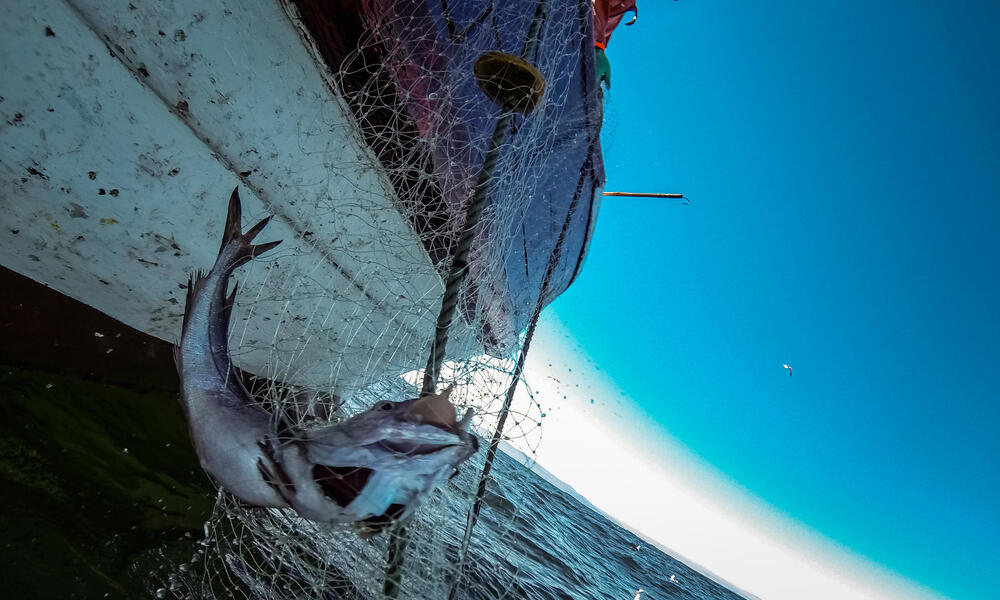Fortunately, we have an opportunity to predict and prevent future clashes over ocean resources and their fallout. WWF announced the launch of our Oceans Futures platform, a first-of-its-kind initiative that uses global climate and fisheries models to highlight 20 regions of the world that will likely see greater conflict, food insecurity, or geopolitical tensions over ocean resources by 2030. Designed to identify the inevitable challenges fisheries will face, this early warning tool enables the international community to take bold, collaborative action on conservation and conflict prevention for a more peaceful future for people and nature.
“Oceans Futures connects the dots between protecting the health of the ocean and greater peace and food security for billions of people who rely on fisheries around the world,” said Sarah Glaser, senior director of Oceans Futures. “Our goal is to promote solutions to the climate and biodiversity crises that will prevent conflict before it happens.”
The platform’s initial rollout combines projections for how fish stocks will shift over time due to climate change, and how those movements will increase the risk of competition and conflict over fisheries. Hotspots were identified by combining data projecting fisheries movement by 2030 with socio-economic and security variables—including nutrition profiles, economic levels, the presence of foreign fishing vessels, and contested maritime borders—that help assess a country’s risk to fisheries conflict.
By early 2025, Oceans Futures will expand the available body of data and use machine-learning models to understand what causes low-level conflicts to escalate and, most importantly, what solutions can prevent that escalation from continuing.
Regions expected to see a notable uptick in conflict include the waters surrounding the Arctic Ocean, the Eastern Tropical Pacific, and the Horn of Africa. Explore a few case studies spotlighted in the platform to better understand existing and upcoming challenges faced by communities and governments that rely on fisheries for their livelihoods and economies.

